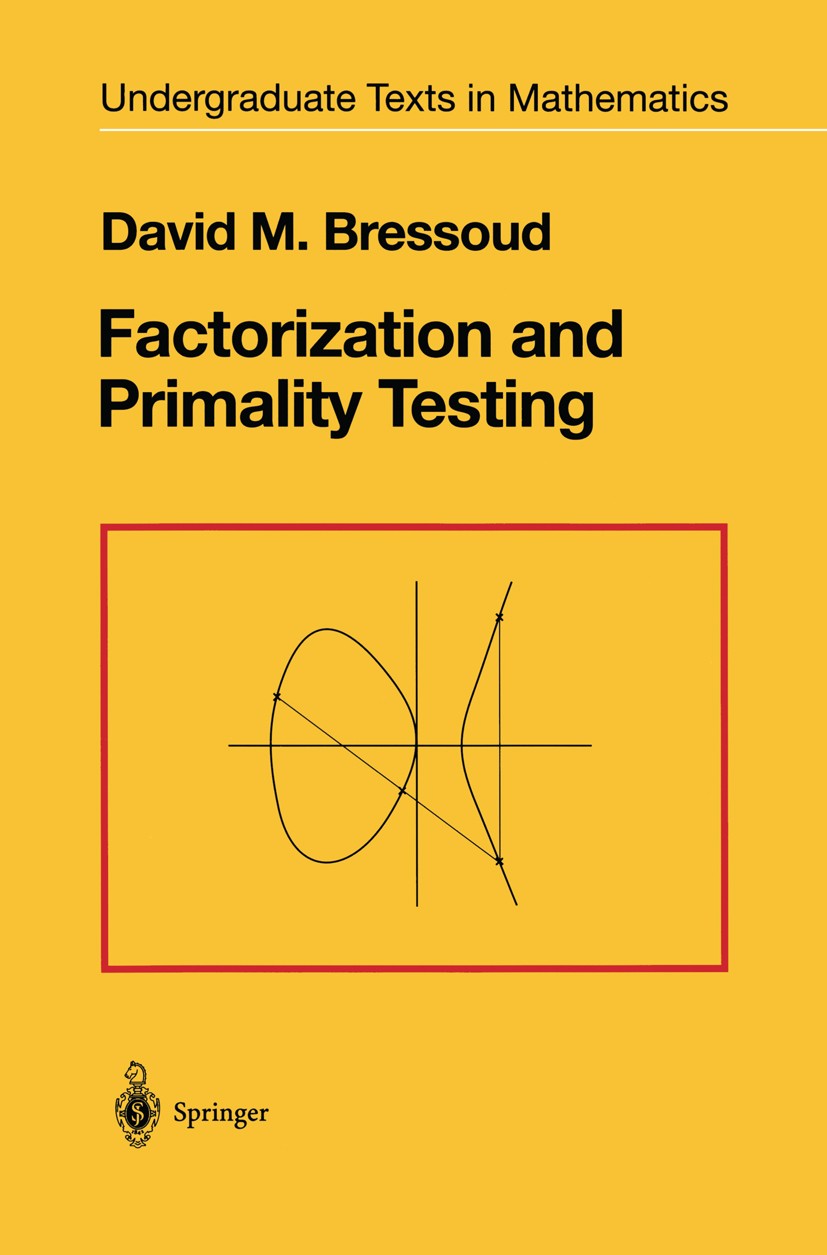| 書目名稱 | Factorization and Primality Testing | | 編輯 | David M. Bressoud | | 視頻video | http://file.papertrans.cn/341/340447/340447.mp4 | | 叢書名稱 | Undergraduate Texts in Mathematics | | 圖書封面 |  | | 描述 | "About binomial theorems I‘m teeming with a lot of news, With many cheerful facts about the square on the hypotenuse. " - William S. Gilbert (The Pirates of Penzance, Act I) The question of divisibility is arguably the oldest problem in mathematics. Ancient peoples observed the cycles of nature: the day, the lunar month, and the year, and assumed that each divided evenly into the next. Civilizations as separate as the Egyptians of ten thousand years ago and the Central American Mayans adopted a month of thirty days and a year of twelve months. Even when the inaccuracy of a 360-day year became apparent, they preferred to retain it and add five intercalary days. The number 360 retains its psychological appeal today because it is divisible by many small integers. The technical term for such a number reflects this appeal. It is called a "smooth" number. At the other extreme are those integers with no smaller divisors other than 1, integers which might be called the indivisibles. The mystic qualities of numbers such as 7 and 13 derive in no small part from the fact that they are indivisibles. The ancient Greeks realized that every integer could be written uniquely as a product of indivi | | 出版日期 | Textbook 1989 | | 關鍵詞 | Euclidean algorithm; Mersenne prime; binomial; elliptic curve; prime number; quadratic form | | 版次 | 1 | | doi | https://doi.org/10.1007/978-1-4612-4544-5 | | isbn_softcover | 978-1-4612-8871-8 | | isbn_ebook | 978-1-4612-4544-5Series ISSN 0172-6056 Series E-ISSN 2197-5604 | | issn_series | 0172-6056 | | copyright | Springer-Verlag New York, Inc. 1989 |
The information of publication is updating

|
|
 |Archiver|手機版|小黑屋|
派博傳思國際
( 京公網安備110108008328)
GMT+8, 2025-10-13 23:01
|Archiver|手機版|小黑屋|
派博傳思國際
( 京公網安備110108008328)
GMT+8, 2025-10-13 23:01


